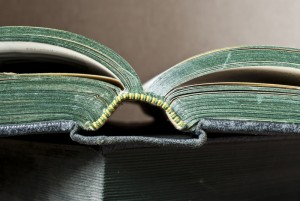Where does the smell of old books come from?
If there’s one smell that readers love, it’s the smell of old books. Few can resist the smell of a secondhand bookstore, or opening up a book that hasn’t seen the light of day for a long time and letting the small wash over you. But where does this smell come from? It’s based on the composition of the book, and the smell actually changes over time! Read on to learn more.
Where does the smell of old books come from?
There are a number of organic compounds found in old books that were used to make bindings, glue and paper. These include rosin, bleached pulp, groundweed, milk protein, animal fiber, and rag fiber. Many of these compounds are no longer used in book binding and printing. Rosin, for example, has been out of use for several decades because of environmental concerns over its use.
Over the years, the materials used to make these books break down into what are known as Volatile Organic Compounds (VOCs). These are released slowly into the air. So when you’re smelling an old book, you’re smelling the result of the degradation of the organic materials used to make the book so many years ago.
In a study done a few years ago at University College London, scientists determined there are 15 VOCs that are consistently present when a book is degrading. They also discovered that the amount of compounds found in a sample from a book can tell you how far along a book is in the process of degradation. They gathered this information in the hopes of using it to learn how to better preserve old books and archives.
The study found that the two worst compounds for a book were lignin and rosin. Lignin is found in wood fiber, which was used before rag paper replaced it in 1850. Lignin yellows over time. Rosin as added to paper to make it better for writing, but it breaks down into acidic byproducts that corrode the paper itself.
And what did the researchers think of the smell of old books? They likened it to, “A combination of grassy notes with a tang of acid and hint of vanilla over an underlying mustiness.” Mmmm. Smells good doesn’t it?

Sources
